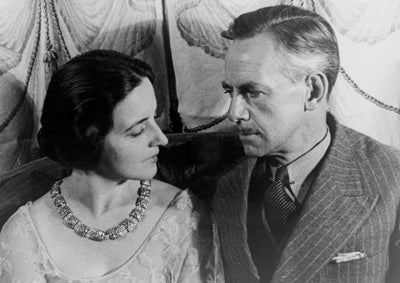“Producer director Alfred Kelman turns in a masterful job of melding narration, script, stills, film and music into a first rate production.” - Variety
Directed by Alfred R. Kelman
Nominated for an Academy Award for Best Documentary Feature in 1967, The Face of Genius pays, perhaps fittingly, somber tribute to the life and work of American playwright Eugene O’Neill.
The first and still the only American dramatist to win the Nobel Prize for Literature, the Irish Catholic O’Neill was born in 1888 to a theatrical family (his father James O’Neill was a frustrated Shakespearean actor who nevertheless achieved matinee idol fame in the role of Monte Cristo). The domestic dysfunction that shaped O’Neill’s childhood and adolescence—his father’s long absences, his mother’s addiction to morphine—would come to inform many of his plays, especially his most personal work, Long Day’s Journey Into Night. After Catholic school and a stint at Princeton, O’Neill shipped out to sea as a merchant before alcoholism and depression left him haunting the dive bars and flophouses of New York’s waterfront. A bout of tuberculosis and his subsequent convalescence lead to a turning point. O’Neill dedicated himself to writing and soon thereafter arrived in Provincetown, Massachusetts with, as legend has it, “a trunk full of plays.” The work that O’Neill produced with the Provincetown Players, beginning in 1916, ushered in the modern era of American theater. In plays such as The Emperor Jones (1920), Anna Christie (1920) and The Hairy Ape (1922), O’Neill brought a forceful, vernacular realism to the stage with stories about people on the edge struggling for dignity in the face of crushing tragedy. Though his work earned unprecedented critical praise, including four Pulitzer Prizes, O’Neill was tormented by demons throughout his life, including multiple failed marriages, estrangement from his daughter Oona O’Neill (later wife of Charlie Chaplin) and, ultimately, crippling illness.
Directed by Alfred Kelman for public television station WBZ-TV in Boston, The Face of Genius traces O’Neill’s biography to measure the cost of artistic commitment to truth, both personal and aesthetic. Jason Robards narrates his life story over impressionistic images of ocean waves crashing on rocky shores, the winter stripped branches of gnarled trees and deserted cottages on windswept acres that sustain the documentary’s brooding tone. Brief scenes from All God’s Chillun Got Wings (1924) and The Iceman Cometh (1940) are also re-enacted along with commentary on O’Neill’s work and significance by Arthur Miller, drama critic Brooks Atkinson and director José Quintero.
Paul Malcolm
WBZ-TV, Group W, Boston. Producer: Alfred R. Kelman. Writer: Robert Markowitz. Music: Teo Macero. Narrator: Jason Robards.
16mm, b/w, 51 min.
Preserved by the Academy Film Archive and UCLA Film & Television Archive from two 16mm prints. Laboratory services by Fotokem, Audio Mechanics, and NT Picture and Sound.







